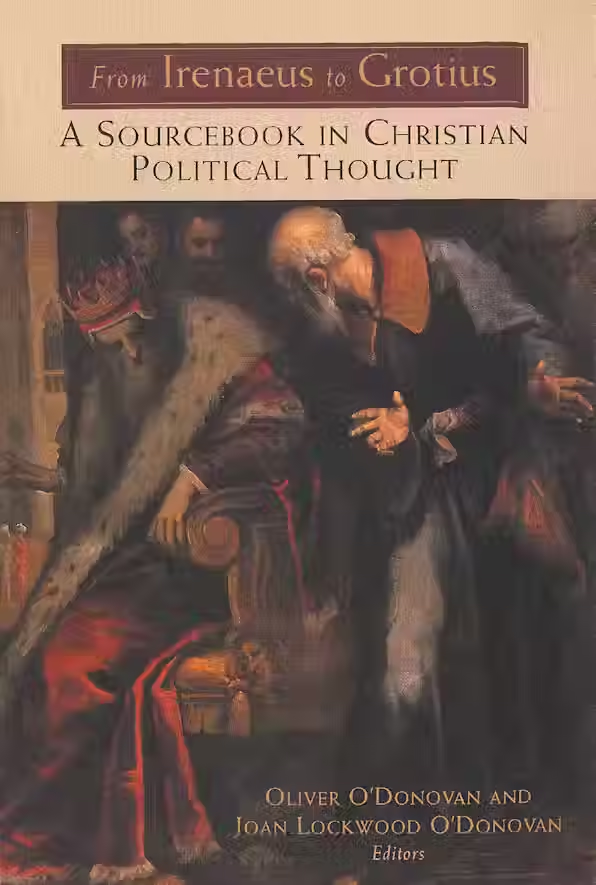Could-Be-Cool Books
Your mileage may vary. No one's got the truth cornered. No one has the Lion of Judah by the tail.
All these words are just words unless life is in them. Use what's useful. Don't bother with what isn't.
by Margaret Bronson
Yeah, we're biased, but we do think this one is pretty good. 😅
You probably know the story of how Moses was born, rescued from the Nile, grew up an Egyptian prince, and became God's partner in saving the Hebrews from slavery. But did you know that first, five women partnered with God to make it all possible?
Did you know that they all have names?
In telling the often-forgotten story of the five women of Moses' birth narrative (Exodus 1-3), Margaret Rose Bronson performs a moving, beautiful act of theological and textual retrieval in her literary debut. This children's book is intended to help little ones see the goodness of God, know His heart, and understand what He values, by honoring and centering the stories of five women whose astounding acts of courage and obedience were used by God to bring about one of the most dramatic rescues in Biblical and redemptive history.
From Irenaeus to Grotius: A Sourcebook in Christian Political Thought
by Oliver and Joan O'Donovan
Are you into source documents and original sources? The O'Donovans have done incredible work cutting together dozens of voices across the Christian tradition. The result is, for better or worse, an honest look at the development of how Christians thought about the church and politics - at least, in the Western world. It's dense, but if you want to hear straight from the horse's mouth, this is a great way to do it without having to buy forty books or listen to three dozen lectures.
From Eerdman's:
"A reference tool that provides an overview of the history of Christian political thought with selections from second century to the seventeenth century.
From the second century to the seventeenth, from Irenaeus to Grotius, this unique reader provides a coherent overview of the development of Christian political thought. The editors have collected readings from the works of over sixty-five authors, together with introductory essays that give historical details about each thinker and discuss how each has contributed to the tradition of Christian political thought. Complete with important Greek and Latin texts available here in English for the first time, this volume will be a primary resource for readers from a wide range of interests."
A Church Called Tov
by Scot McKnight and Laura Barringer
A Church Called Tov has served many in the deconstruction community by helping to provide a vision of church that gets at what Jesus was establishing when He said, "A new command I give to you: love one another." McKnight and Barringer come at the problem from an abuse perspective, but this book includes a lot of thought on how churches function and 'ought' to function.
From the authors:
"Tragically, in recent years, Christians have gotten used to revelations of abuses of many kinds in our most respected churches.
We need a better way. The sad truth is that churches of all shapes and sizes are susceptible to abuses of power, sexual abuse, and spiritual abuse. Abuses occur most frequently when Christians neglect to create a culture that resists abuse and promotes healing, safety, and spiritual growth.
How do we keep these devastating events from repeating themselves? We need a map to get us from where we are today to where we ought to be as the body of Christ. That map is in a mysterious and beautiful little Hebrew word in Scripture that we translate “good,” the word tov."
A Grief Observed
by C. S. Lewis
C. S. Lewis famously wrote "The Problem of Pain," an apologetic for God's goodness in light of the existence of evil. In it, he ruminates on suffering and reflects on how best to live in light of it. It is - like Lewis - generally tidy, logical, warm, and intended to be reassuring.
That is not this book. This book is Lewis uncensored, furiously slinging ink one moment and crushed beneath despair the next. Here, we see Lewis confront how suffering actually feels, and the conclusions he draws are much more three-dimensional than the purely philosophical approach of The Problem of Pain.
In that sense, this book has been incredibly helpful to some deconstructors: Lewis pulls no punches about what it's like to really hurt, and to feel abandoned in the process. BE AWARE: This is uncut Lewis, and probably needs a trigger warning in that he does not mask his emotions or his trauma here. We see him move through glorifying his pain, to despairing in it, to eventually coming to terms with it. It's raw - so if you choose to crack this one open, go slow. It's intense.



